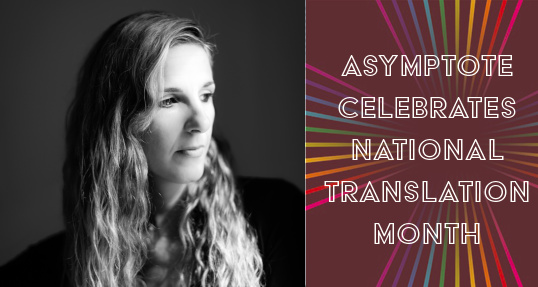Around the world, the way we read is changing: Eva Wissting digs into book sales data in Sweden and finds a spike in digital subscription services amid the pandemic, Peera Songkünnatham reports that Thai poets are reinventing a classic form, and Allison Braden rounds up a slew of Women in Translation Month events. The annual celebration, dedicated to shaking up the canon, makes for a perfect moment to envision the heady, vivid future of literature.
Eva Wissting, Editor-at-Large, reporting from Sweden
A literary project called Bokbastionen (“The Book Bastion”) is finally about to launch in Sweden. The Swedish Arts Council has granted Svenska Bokhandlareföreningen, an association of Swedish booksellers, 400,000 SEK to support in-store events with authors. Although it was the challenges posed by the pandemic that led to the idea of supporting booksellers, coronavirus restrictions have delayed its start because gatherings have not been possible until now. Finally, the first event supported by the project will be held this coming week at a poetry festival in picturesque Söderköping. The initial plan for Bokbastionen included twenty author events this year, but about half of these will spill over into next year instead. The interest to host events has been particularly large among smaller, independent bookstores, which now are looking for ways to create interest among readers and book lovers.
Even though the pandemic has had severe consequences for much of the cultural sector, book sales have had a positive development in Sweden, according to a new report from the Swedish Publishers’ Association. In the first half of 2021, overall book sales have increased by over 10 percent, but there is an ongoing shift between sales channels. The largest growth is in digital subscriptions with almost 20 percent, followed by an almost 15 percent increase in online bookstores. Physical bookstores, on the other hand, have had an 8 percent decrease in sales during the first half of this year. Both digital and printed books increased in sales, by 14 percent and 7 percent respectively, indicating that ebooks are not replacing physical books. Out of all book sales in Sweden, almost 80 percent take place online—50 percent through online bookstores and 28 percent through digital subscriptions. The report concludes that book sales have been greatly influenced by the pandemic. More customers have turned to online options, including digital subscription services. Though there are more bookstores closing down permanently than there are starting up, readers seem to be returning to physical bookstores as vaccination rates increase. READ MORE…



